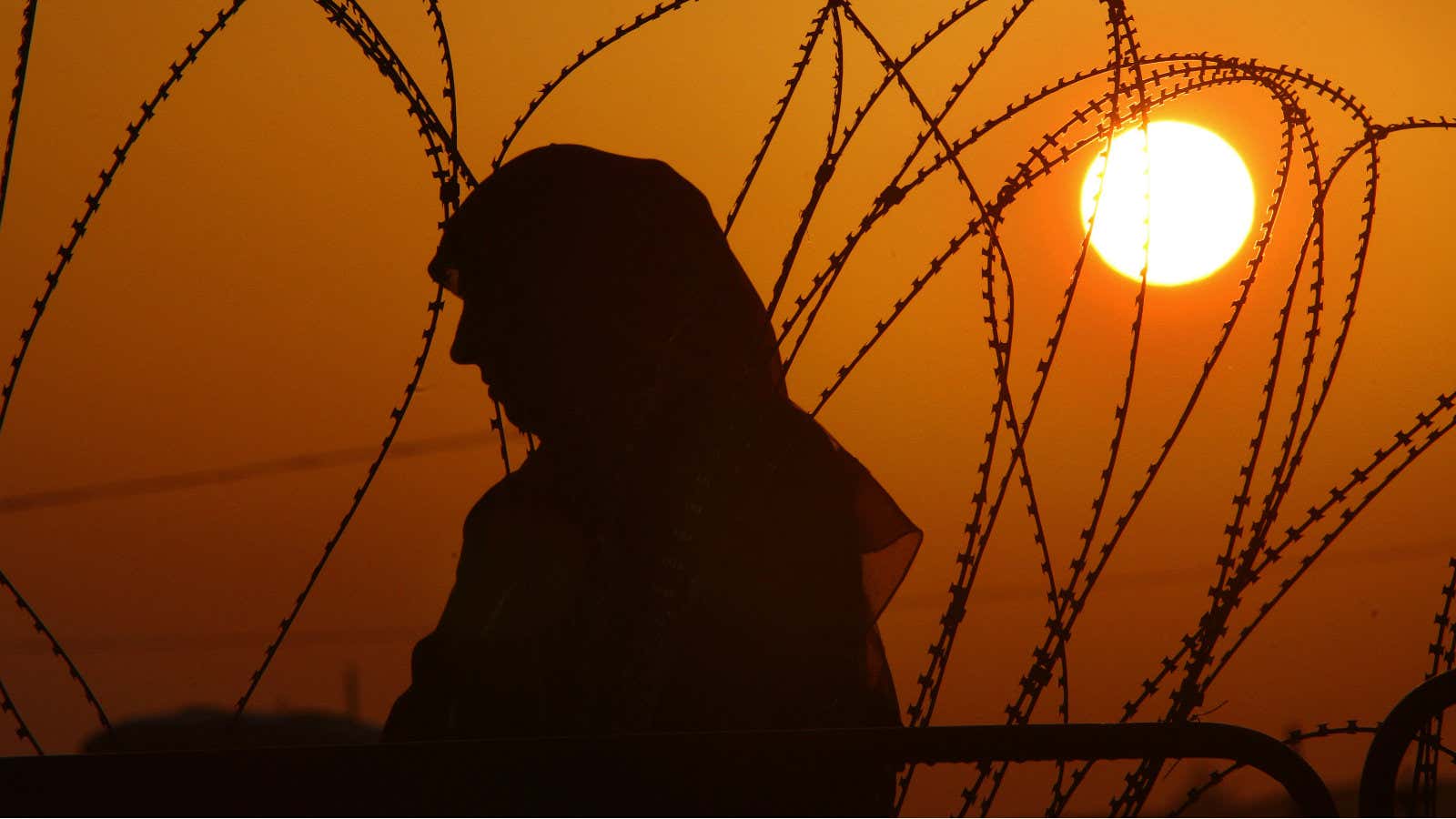On July 20, the death in Pakistan of Samia Shahid, a 28-year-old British woman from Bradford, was reported to Pakistani authorities in what is now believed to have been an “honour killing.” Her husband says she was tricked into going to Pakistan by her family.
That same day, Theresa May gave her first prime minister’s questions and agreed with Nusrat Ghani MP that so-called honour-based violence should be re-categorised as an act of terror in the UK. This has caused consternation among campaigners who fear that certain crimes against women could now be treated as terror-related.
Some feminists do believe that all forms of patriarchal violence should be understood as terrorism, but May’s comments move the debate in a different direction. Considering this kind of violence—which mainly affects black and minority ethnic women—as terrorism is another example of the government’s damaging conflation of the issue with race, religion and immigration.
Honour-based violence is where a person, usually a girl or woman, is attacked by relatives who believe dishonour has been brought to their family. If this kind of violence is treated as a form of terrorism, there will be serious questions about where the authorities draw the line between domestic violence and an honour-based crime.
Shift in emphasis
There is no empirical evidence to suggest that honour-based violence, or other forms of domestic violence, are linked to the current terrorism threat. While there are examples of individual terrorists with histories of domestic violence, arguing that perpetrators of domestic violence might go on to become terrorists is a very different claim.
Despite this, over the past decade government policy has referred with increasing regularity to certain “illegal cultural practices” as an integral part of the forms of extremism which lead to terrorism. In 2015, when the Prevent counter-terrorism guidance was placed on a statutory legal footing, the then-prime minister David Cameron placed these forms of gender-based violence squarely in the realm of extremism.
They are now enshrined in the Counter Extremism Strategy and anticipated to be included within the Counter Extremism and Safeguarding Bill which was proposed in the 2016 Queen’s Speech. In a section on “building cohesive communities”, the Prevent strategy implies that more integrated communities which adhere to “British values“ and therefore somehow reject gender-based violence will be more resilient to the risk of radicalisation.
May’s response is therefore not new, but it clearly underlines the paradigm shift that has taken place over three successive governments. Forms of violence directed mainly at black and minority ethnic women in Britain are no longer viewed as “violence against women“—they are viewed through the lens of threats to national security.
A public health issue
Activists have battled for years to make sure that violence against women and girls, particularly when it occurs in the private sphere and within families, should not be treated solely as a criminal justice issue but as a public health one. Reducing harm is of paramount importance. Yet, intimate partner or familial violence is a complex issue. Women do not necessarily want to criminalise their partners or family members and it is not always safe for them to do so. Women should feel safer in the knowledge that they can seek help at their nearest hospitals and walk-in centres without necessarily involving police, particularly when their most urgent requirement is medical assistance. But treating this violence in the context of counter-extremism means police are involved from the outset.
Most people would agree that perpetrators of violence against women should be brought to justice, but to attempt to do so by incorporating such violence into a counter-terrorism strategy is a blunt instrument. It casts the ordinary, everyday abuse of some black and minority ethnic women – which requires sensitive responses to the complex needs and wishes of victims – as violence that is unusual, exceptional and extraordinary.
This can only serve to further stigmatise and even criminalise vulnerable women and girls. They may already lack the confidence needed to report the violence they are experiencing – now we risk marginalising victims even further. This also makes an association between race, culture and religion in the public imagination about who society is meant to perceive to be potential terrorists. By prioritising counter-extremism over the needs of women and girls, the government is riding roughshod over the needs of victims.
One chance to save a life
On average, women will endure 35 incidents of domestic violence or abuse before contacting police and this is likely to be higher for black and minority ethnic women. It is believed that there are almost 3,000 reported cases of honour-based violence each year; but in 2014-15 only 158 cases were successfully prosecuted.
In a December 2015 report on dealing with honour-based violence, Her Majesty’s Inspectorate of Constabulary described the first contact a victim has with police as the “one chance rule” – one chance to save a life. By continuing to abandon certain groups of black and minority ethnic women who have suffered violence by subsuming them under the ever-expanding rubric of counter-extremism and counter-terrorism, this becomes the “no chance” rule.
In order to keep all women and girls in the UK safe, we call on the government to urgently review the incorporation of “illegal cultural practices” into the strategy and proposed legislation on counter extremism.
This article was originally published on The Conversation. Read the original article. We welcome your comments at ideas.india@qz.com.
